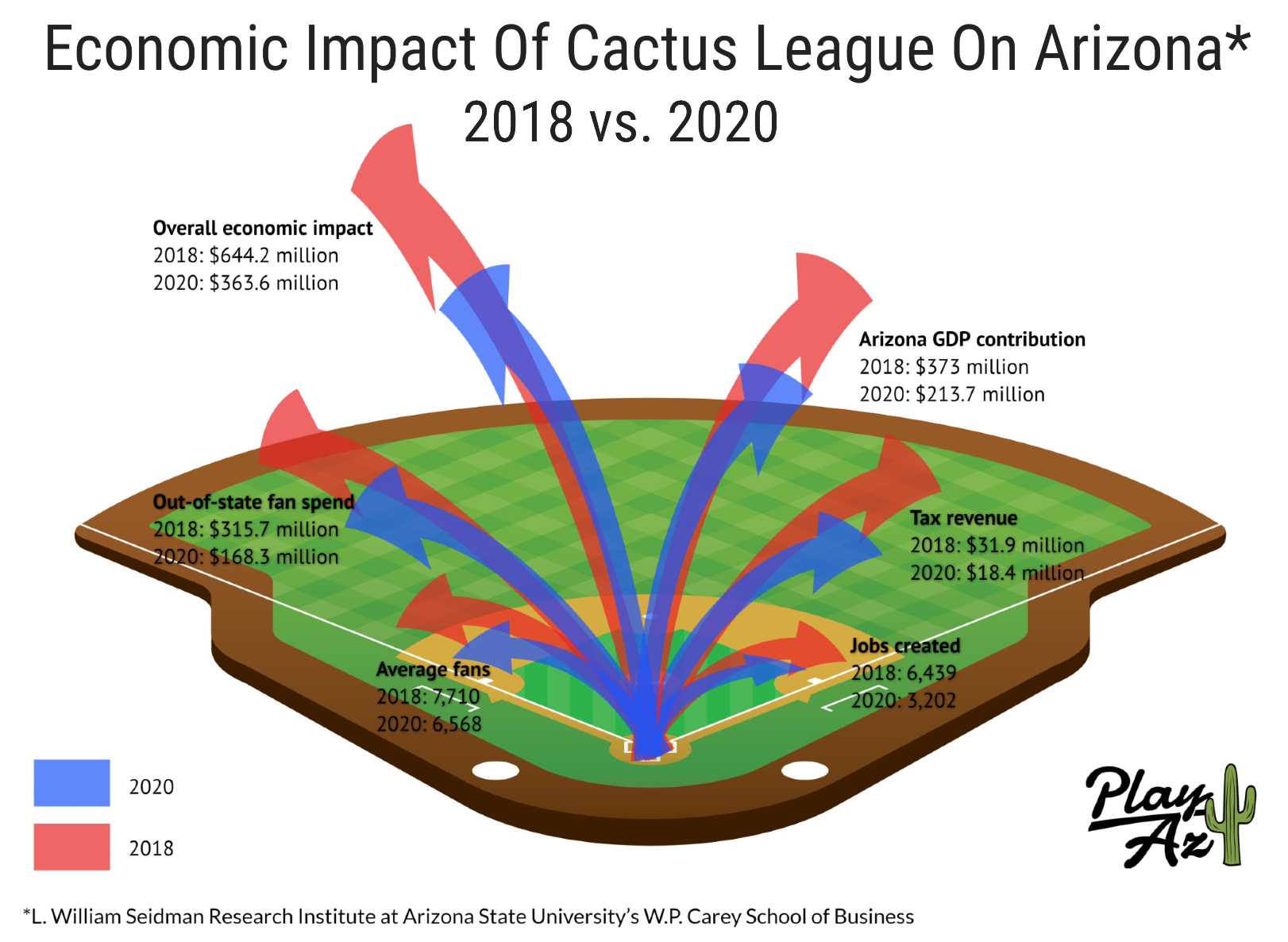
Following the Major League Baseball Player & rsquo, the Association unanimously decided not to accept the league’s final proposal for a new collective bargaining agreement. The first two regular time series have been canceled as a result, according to MLB inspector Rob Manfred.
Both parties are hoping to close a deal quickly to save the remaining standard time. It appears unlikely, though, that a deal may be reached in time to permit Arizona to host Spring Training sports. Without summertime ball, the Grand Canyon State is now in for a sizable financial setback.
Cactus League dealt a terrible hands for the third consecutive time.
Spring training in Arizona was set to mark its 75th anniversary in 2022. The Cactus League has dealt with an abbreviated schedule and seating restrictions the past two years due to COVID-19. Now, a labor dispute and player lockout could shut down spring training entirely.
In other words, thousands of tourists from outside the condition are canceling their vacation plans, rental cars, and hotel reservations. Currently, hundreds of millions of dollars in hospitality for Arizona are in jeopardy.
Cactus League flower training activities have already been postponed until March 8. The Cactus League & rsquo’s executive director, Bridget Binsbacher, told PlayAZ that they have little control over the situation.
According to Binsbacher, & ldquo, We & rsquo are not present in the room or a part of those discussions; rather, they are simply waiting to see what transpires and what the announcements are.
If the MLB and MLBPA come to an agreement soon, the ten ballparks near rail Phoenix could start immediately. However, it is depressing that it has taken so long to reach a conclusion.
It’s frustrating, & ldquo, It & rsquo. It’s disappointing, & rdquo, said Binsbacher. & ldquo, despite all the uncertainty this year, we are going to be adaptable. We are confident that our services will be prepared for any chance that arises so that we can take advantage of it. & rdquo,
Economic effects of Arizona’s Spring Training Baseball
For Arizonans, the potential revocation of Spring Training is not at a good time. Due to COVID-19, their firms have already dealt with the previous two flower trainings, which have either been modified or cut short.
The Cactus League’s most recent economic impact study, Arizona State University & rsquo, was conducted around the 2020 spring season, which was postponed on March 12 due to business closures. Of the 237 games that were scheduled, 139 were played.
Companies in Arizona could afford the cost of no flower education.
The league created 3,200 jobs in 2020, earning about$ 18 million in state and local taxes and$ 168 million overall. in out-of-state fans’ direct spending and an overall financial effect of$ 364 million during that brief time. According to the review, customers from outside the city typically stayed five times and spent$ 336 per day.
For 2018, the last full year for which a study was conducted, the figures were roughly double. Arizona’s spring football season generated 6, 400 employment and an economic impact of$ 644 million.
We are prepared to take part in the recovery for Arizona tourism and the state & rsquo, s economy, andrdquo because we are aware of what the impact can be and what it has historically been, according to Binsbacher. We are confident that we can get adaptable because of what we have experienced over the past few years. & rdquo,
In 2021, there was flower education. However, as another COVID — 19 precaution, stadiums only had a 20 % to 25 % seating capacity. Therefore, completely eliminating spring education could be disastrous for the smaller companies that surround the ten Cactus League ballparks.
According to Binsbacher, all of the restaurants and bars that surround those services depend on the influx of tourists that Spring Training brings. Behind each of those is a family or individual that this affects, & ldquo. Therefore, there is a tremendous flow down. & rdquo,
According to the 2018 research,$ 122 million was spent on the facilities that surround Cactus League football stadiums.
What the MLB and MLBPA can’t agree on is a no-deal.
MLB and the MLBPA departed the negotiation board without reaching a consensus. After nine weeks of negotiations, the two sides are leaving for house. Before going back to the bargaining table, it is unclear what will happen then.
According to reports, the MLB’s final proposal featured an increase for minimum salaries from $675,000 to $700,000, moving up $10,000 per year. Those figures are based on there being an increase to 12 postseason teams and the addition of five lottery slots in the draft.
Among the many disputes, the players union is seeking changes to the league’s eligibility for free agency. Players currently need six years of MLB service time to satisfy that requirement. The union hopes to see that threshold lowered, allowing them to become free agents while younger and more valuable. They also want to see a designated hitter (DH) added to National League rosters, which players hope will secure a job for a veteran.
Baseball betting is delayed
Another downside to this lockout is the inability for the MLB to capitalize on the hot Arizona sports betting market. Legal sports betting launched on September 9, 2021. That was around the tail end of the 2021 baseball season.
According to WynnBet Sportsbook, some 13.9% of all wagers placed through the app nationwide stemmed from MLB betting in 2021. In Arizona, it was 7.3% of the handle taken by WynnBet AZ. And that was with only about two months worth of betting that included the end of the regular season, the playoffs and the World Series.








